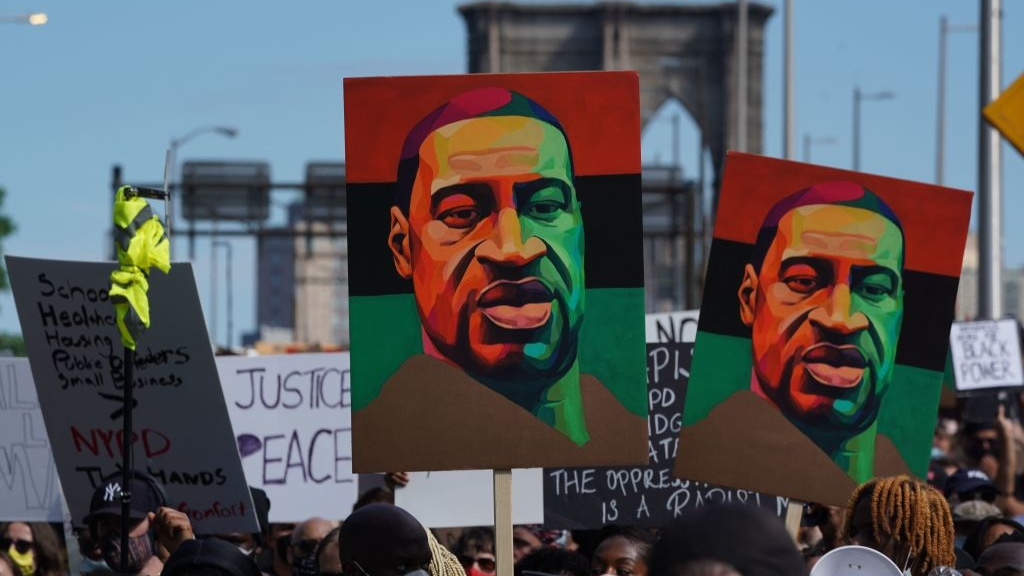The Minneapolis City Council has decided to devote a small portion of the city's police budget to alternative methods of policing including violence prevention specialists and mental health crisis teams, according to The Minneapolis Star Tribune and The Washington Post.
In a budget that was approved on Thursday, $7.7 million from the $179 million police department budget will now go toward supporting other methods of conflict resolution.
After the police killing of George Floyd on video this summer, there were widespread calls for the city's police department to be disbanded or defunded, even by some city council members.
But city leaders quietly backed off of any plans that would see any major changes to the city's police department and even struggled just to push through the relatively minor $7.7 million change.
The Washington Post reported that Mayor Jacob Frey threatened to veto the budget because of the $7.7 million shift and only backed off of that threat when the city council agreed to remove another section that attempted to reduce the city's 880-person police force by 130.
"My colleagues were right to leave the targeted staffing level unchanged from 888 and continue moving forward with our shared priorities," Frey said in a statement to The Minneapolis Star Tribune. "The additional funding for new public safety solutions will also allow the city to continue upscaling important mental health, non-police response, and social service components in our emergency response system."
Despite shifting the $7.7 million away from the police department, the budget includes an $11.4 million reserve fund designed to help cover costs related to recruiting more officers and police overtime.
The city council's decisions came after they hosted a spirited debate over what should happen with the city's police department, according to CBS Minnesota.
Some residents who called into the virtual town hall expressed anger that more was not being done to change the police department or significantly reduce its large budget. But others complained that the little money that was cut would hurt the city because of a recent rise in crime, fueled partially by the economic devastation wrought by the coronavirus pandemic.
“The actions of the MPD after George Floyd just showed to me how the MPD is irredeemable. They don’t care about us. They all live in the suburbs, and they don’t prevent any crime. All they do is escalate the situation,” a caller named Paul told the council at the meeting, according to The Washington Post.
With a population of about 425,000 people, Minneapolis has had more than 70 homicides in 2020 and almost 530 people have been shot this year, a figure that is double what was seen in 2019, according to The Washington Post.
“The fact that this council does not even acknowledge there is a problem is irresponsible. The crime rate is at an all-time high, and you want less cops on the street. Where does common sense come into the equation,” Minneapolis resident Doug Tanner said.
Despite having the funds for 880 officers, the Minneapolis Police Department is missing 166 officers because of retirements and medical leaves taken after the protests following Floyd's killing.
But USA Today also noted that members of the city council who initially supported more drastic police department cuts received death threats and the city had to pay $4,500 a day to provide security for three of them.
The Leadership Conference Education Fund released a survey showing that Black, Latino and Native American communities in Minneapolis still have deep distrust and dissatisfaction with the Minneapolis Police Department.
The "Public Safety in Minneapolis: Community Perceptions of Policing" study found that 74.5% of Black respondents do not believe MPD face accountability for misconduct. More than 80% of Black respondents who had interacted with police during a mental health call did not find MPD helpful and 90.8% of Black respondents do not believe or do not know if MPD is accessible, regarding language barriers, accessibility, and mental health crises.
“This survey only demonstrates what we’ve known for decades—that Black communities in Minneapolis need this untenable system to be completely transformed,” said Kandace Montgomery, co-executive director of Black Visions Collective, in a statement to Blavity. “We have to demand that such change be made possible, by ensuring the services and support we need are prioritized, thoroughly funded, and centered within our communities. We deserve better and must forge a future where public safety is community-led.”
